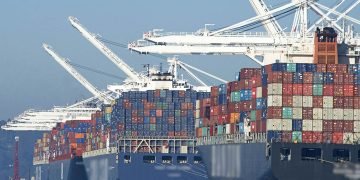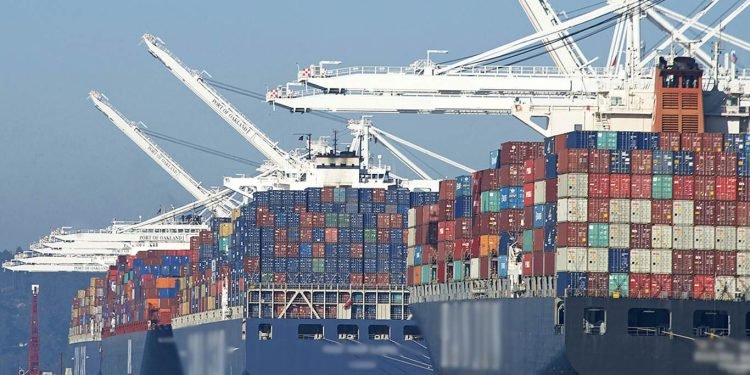By Eva Richardson – The Logistic News
February 26, 2025 – India’s maritime sector continues to play a pivotal role in the country’s economic development, serving as a backbone for global trade and connectivity. Speaking at the 12th Biennial International Conference on Ports, Shipping & Logistics 2025 in Mumbai, Union Minister of Commerce & Industry, Shri Piyush Goyal, underscored the importance of maritime infrastructure expansion and policy reforms to enhance India’s competitiveness in the global logistics landscape.
Strengthening India’s Maritime Capabilities
India’s strategic location, with a 7,500 km coastline and 95% of its trade volume passing through ports, presents a tremendous opportunity for enhancing port efficiency, shipbuilding, and logistics operations. Minister Goyal emphasized the need for a robust shipbuilding industry, calling for more Indian-flagged vessels to strengthen domestic shipping and reduce reliance on foreign carriers.
“Despite cabotage-friendly policies aligned with WTO regulations, India still lacks a sufficient fleet to fully leverage its maritime trade potential. We must work towards making vessel flagging more attractive and incentivizing investment in the shipbuilding sector,” he stated.
Boosting Port Infrastructure and Logistics Efficiency
India has made significant strides in port development, with capacity doubling over the past decade and ship turnaround times drastically reduced. However, the next phase of growth requires a focus on integrated logistics to further streamline supply chain operations.
Key initiatives highlighted include:
- The Unified Logistics Interface Platform (ULIP) to enhance digital connectivity between ports, terminals, and logistics players.
- Expanding container manufacturing to reduce dependency on imports.
- Accelerating cargo clearance and export processes to minimize bottlenecks.
- Reducing congestion at major ports through advanced automation and capacity expansion.
Bridging the Skills Gap in Maritime Workforce
Minister Goyal also stressed the need to develop a skilled maritime workforce, ensuring the sector remains competitive with hybrid training models that blend traditional learning with digital advancements. He encouraged industry leaders to collaborate with government agencies and educational institutions to build a strong talent pipeline for India’s growing logistics and shipping industry.
A Vision for the Future
India’s ambitious National Logistics Policy aims to position the country as a top global maritime and logistics hub, aligning with the vision of ‘Viksit Bharat’ (Developed India). By focusing on infrastructure expansion, policy modernization, and workforce development, India is set to strengthen its position in global trade.
With continued investments and strategic collaborations, India’s ports, shipping, and logistics sectors are poised to become more efficient, competitive, and resilient, driving economic growth for the decades ahead.
For continued updates on India’s maritime and logistics developments, stay connected with The Logistic News.
For media inquiries or to share insights, contact us at info@thelogisticnews.com.























